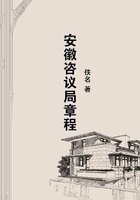From the Battle of Savannah to the Defeat of Gates at Camden.
The failure of the combined forces of France and America before the walls of Savannah, left the cause of the latter, in the South, in much worse condition than before. The event served to depress the Carolinians, and in the same degree, to elevate and encourage the enemy.
The allies withdrew to their ships, and, shortly after, from the coast.
General Lincoln, with the American army, retreated to the heights of Ebenezer, and thence to Sheldon. Proceeding from this place to Charleston, he left Marion in command of the army. On the thirty-first of January, 1780, he writes to the latter as follows: "The state of affairs is such as to make it necessary that we order our force to a point as much and as soon as possible. No troops will be kept in the field except two hundred Light Infantry and the Horse (Washington's).
You will therefore please to select from the three regiments with you, two hundred of your best men, and those who are best clothed, and organize them into corps, with proper officers. All the remainder, with the baggage of the whole (saving such as is absolutely necessary for light troops), will march immediately for this town. You will please take command of the light infantry until Lieut. Col. Henderson arrives, which I expect will be in a few days. After that, I wish to see you as soon as possible in Charleston."In the February following, Marion was dispatched to Bacon's Bridge on Ashley river, where Moultrie had established a camp for the reception of the militia of the neighborhood, as well as those which had been summoned from the interior. It was to Marion that Lincoln chiefly looked for the proper drilling of the militia.
In his hands they lost the rude and inefficient character, the inexpert and spiritless manner, which, under ordinary commanders, always distinguish them. Feeling sure of their Captain, he, in turn, rendered them confident of themselves. Speaking of Marion's "PATIENCE with the militia" -- a phrase of great importance in this connection -- Horry, in his own memoirs, which now lie before us, adds, "No officer in the Union was better calculated to command them, and to have done more than he did."* Lincoln knew his value.
The admirable training of the Second South Carolina Regiment had already done high honor to his skill as a disciplinarian.
He discovered the secret which regularly bred military men are slow to discern, that, without patience, in the training of citizen soldiers for immediate service, they are incorrigible; and patience with them, on the part of a commanding officer, is neither inconsistent with their claims nor with their proper efficiency.
--
* MS. Memoir of Gen. Horry, p. 55.
--
The accumulation of troops at Bacon's Bridge was made with the view to the defence of Charleston, now threatened by the enemy.
Many concurring causes led to the leaguer of that city. Its conquest was desirable on many accounts, and circumstances had already shown that this was not a matter of serious difficulty. The invasion of Prevost the year before, which had so nearly proved successful; the little resistance which had been offered to him while traversing more than one hundred miles of country contiguous to the Capital; and the rich spoils which, on his retreat, had been borne off by his army, betrayed at once the wealth and weakness of that region. The possession of Savannah, where British Government had been regularly re-established, and the entire, if not totally undisturbed control of Georgia, necessarily facilitated the invasion of the sister province.
South Carolina was now a frontier, equally exposed to the British in Georgia, and the Tories of Florida and North Carolina.
The means of defence in her power were now far fewer than when Prevost made his attempt on Charleston. The Southern army was, in fact, totally broken up. The Carolina regiments had seen hard service, guarding the frontier, and contending with the British in Georgia.
They were thinned by battle and sickness to a mere handful.
The Virginia and North Carolina regiments had melted away, as the term for which they had enlisted, had expired. The Georgia regiment, captured by the British in detail, were perishing in their floating prisons.
The weakness of the patriots necessarily increased the audacity, with the strength, of their enemies. The loyalists, encouraged by the progress of Prevost, and the notorious inefficiency of the Whigs, were now gathering in formidable bodies, in various quarters, operating in desultory bands, or crowding to swell the columns of the British army.
All things concurred to encourage the attempt of the enemy on Charleston.
Its possession, with that of Savannah, would not only enable them to complete their ascendency in the two provinces to which these cities belonged, but would probably give them North Carolina also. Virginia then, becoming the frontier, it would be easy, with the cooperation of an army ascending the Chesapeake, to traverse the entire South with their legions, detaching it wholly from the federal compact. Such was the British hope, and such their policy. There was yet another motive for the siege of Charleston, considered without reference to collateral or contingent events. Esteemed erroneously as a place of great security -- an error that arose in all probability from the simple fact of the successful defence of Fort Moultrie --it was crowded with valuable magazines. As a trading city, particularly while the commerce of the North remained interrupted, it had become a place of great business. It was a stronghold for privateers and their prizes, and always contained stores and shipping of immense value.
The temptations to its conquest were sufficiently numerous.















